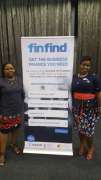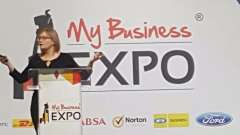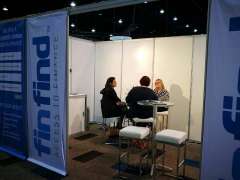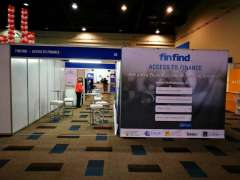Finfind
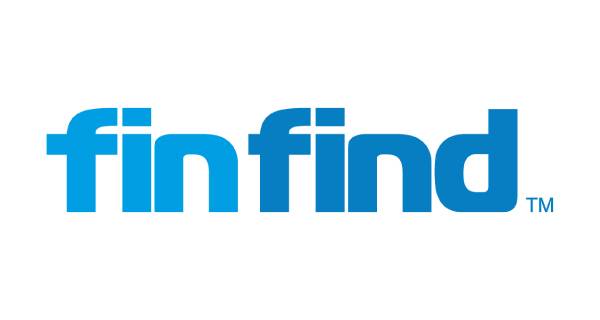
| Monday | 08:00 am - 05:00 pm |
|
| Tuesday | Open Now | 08:00 am - 05:00 pm |
| Wednesday | 08:00 am - 05:00 pm |
|
| Thursday | 08:00 am - 05:00 pm |
|
| Friday | 08:00 am - 05:00 pm |
|
| Saturday | Closed |
|
| Sunday | Closed |
|
| Public Holidays | Closed |
|
NEWS BLOG

Tough times no reason not to start a business
3 August 2017 by IT-Online
Following a technical recession in the first quarter, and with slow economic growth forecast, South Africa can expect tough economic times ahead. But this is no reason not to start a new business, says Nedbank.
Nedbank economist Busiswe Radebe says the global economic picture is uneven, with regions like the US and China performing better than many developing markets.
In South Africa, Nedbank forecasts growth of only 0,6% this year – marginally up on last year’s 0,3%; and growth of under 2% over the next three years.
“Usually, to create jobs you need to see economic growth of around 5%. So currently, jobs are not really being created due to anemic growth and low levels of business and consumer confidence.”
While this may sound like bad news for small business, Radebe says new businesses and small businesses face risks and challenges whether they start during boom or bust times, and that slow economic growth does not necessarily mean business investments should be put on hold.
Nedbank’s Q4 2016 Small Business Index showed that South African businesses were feeling the pressure of the ailing economy, with the cash flow confidence rating dropping in the quarter. Slow payments, low economic confidence and exchange rate had a negative impact, particularly on the mining, agriculture, forestry and fisheries sectors.
According to the Nedbank Small Business IndexTM for the second quarter of this year, business confidence decreased dramatically in the first half of 2017. Small business is definitely feeling the effects of the technical recession, says Radebe, reflecting in the Small Business Index score which is now at its lowest in 4 years. Drought, political uncertainty and negative growth are taking its toll, she notes.
Seen in the light of the recent credit rating downgrade to junk status, the Index endorses the view that the economy is in a challenging phase, and clients are struggling to keep afloat. The Index highlights the need for small enterprises to engage with their personal bankers for ways in which to extract maximum savings.
However, Radebe notes: “Usually after you have a period of weak or negative growth, you can expect something of a rebound. Granted, we have had political turmoil in Q2 which could affect that bounceback, but we can nonetheless expect sectors like agriculture, mining and manufacturing to do better this year.”
In addition, China’s better-than-expected growth of 6.9% in the second quarter and recovery in other developed markets might be seen as cause for optimism for exporters, she says. “In the short term, we can expect to see growth potential in agriculture and produce, mining and manufacturing, services, and even in small luxury goods in the so-called ‘lipstick index’ – an indicator that says when spending is constrained, consumers buy more small luxury goods.”
Radebe points out that in order to thrive in a period of weak economic growth, new and small businesses will have to have sound business plans, strong differentiators, good marketing plans and possibly also value-added services. “If you can identify or create a need in the market, any time is an opportune time to start a business. And there is good news in the recent interest rate cut and indications that we are in a downward rate cycle, which means the cost of servicing debt is likely to go down in future,” she says.
Radebe was speaking ahead of the Small Business Expo that is co-located with the #BuyaBusiness Expo to be held at the Ticketpro Dome in Northriding from 31 August to 2 September. The events, a hub for small business development, showcase new business opportunities and service providers, training and insight for South Africa’s small businesses and would-be entrepreneurs. Nedbank will host daily Money Matters workshops at the Small Business Expo to inform business owners about sound financial practices within a business.

Small businesses need more control and vision
REVIEWS
PHOTO GALLERY
ABOUT US
FINFIND IS SOUTH AFRICA'S LEADING ONLINE ACCESS TO FINANCE SOLUTION
Access to finance is the number one challenge experienced by SMEs - Finfind has been specifically developed to address this problem. Finfind is an innovative, online access to finance solution that brings together the providers and seekers of SME finance with a focus on finance readiness. Finfind aggregates all the public and private sector SME finance offerings into one simple platform and provides an automated matchmaking facility between the lender and the seeker. Finfind has over 200 lenders and over 350 loan products available to SMEs and each lender's listing and their loan product information is kept up to date on a daily basis.
WHAT DOES FINFIND DO?
Finfind's primary objective is to link SMEs who are seeking finance with appropriate lenders. To do this the SME simply enters their company information and loan requirements into an easy step-by-step form. Finfind uses this information to link the SME with all the matching loan offerings. The Finfind lender database includes many different types of SME finance, including:
- Startup Finance
- Expansion Finance
- Equity Finance
- Cash Flow Bridging Finance
- Debt Finance
- Contract Finance
- Asset Finance
- Franchise Finance
- Invoice Discounting
- Supplier Finance
- Import and Export Finance
- Finance to Buy Out a Partner
- Property Finance
- Finance to Buy a Business
- Emergency Finance
- Government Grants
WHAT ELSE DOES FINFIND DO?
Besides linking SMEs with lenders for funding, Finfind also provides helpful finance education information, deals with frequently asked questions and addresses common challenges experienced by SMEs seeking finance - this is found in the LEARN ABOUT FINANCE section. It also offers assistance to help ready you to access finance by linking you with accountants and business advisers who are equipped to help you generate business plans, budgets, forecasts, financial statements and any other documents that lenders need to provide finance - this is found in the GET ASSISTANCE section.
WHAT DOES FINFIND NOT DO?
Finfind does not lend money to SMEs directly; it's purpose is to provide an easy, one-stop shop for SMEs to find and link with all the available SME lenders and loan offerings in the market.
FINFIND'S HISTORY
The United States Agency for International Development (USAID) undertook an comprehensive five year research and development project in South Africa to identify the challenges faced by SMEs wanting to access finance. The findings revealed that the main reasons SMEs struggle to access finance are:
- A lack of finance literacy - not understanding finance terminology.
- A lack of knowledge about who the lenders are, how to access them and what lenders require from them.
- A lack of knowledge about the different types of loan products and which one/s are appropriate for their lending needs.
- Most importantly, a lack of finance readiness.
The challenge lenders face is receiving large volumes of loan enquiries and applications that don't meet their loan product criteria or are not ready to be processed. Lenders are looking for a pipeline of quality SME loan leads that are finance ready and that match their lending criteria.
Finfind is the innovative solution that was developed to address both the SME and the lenders challenges.
At the conclusion of its research programme, USAID transferred ownership of the project to a local fintech business, called TDH, via a competitive bid. TDH subsequently registered Finfind (Pty) Ltd in February 2015 and raised venture capital to build a great team, develop a world-class product and to launch and market Finfind, starting in South Africa.
The Department of Small Business Development identified Finfind as a vital solution to address the challenges experienced by providers and seekers of SME finance in South Africa.
Finfind was launched in South Africa by the Minister of Small Business Development in October 2015.
SERVICES
Are you a Entrepreneur needing finance?
Finfind links you with the all the lenders across the country that match your specific finance needs - over 300 funds
We don't only link you with lenders to get finance, we also have a LEARN ABOUT FINANCE section and GET ASSISTANCE section to help you get your business ready to access finance.
Do You Need a Business Adviser?
- To help with your BUSINESS PLAN
- To provide FUNDING ADVICE
- To build your BUSINESS and FINANCIAL MODEL
- To assist with BUSINESS STRUCTURING
- Provide assistance with your LOAN APPLICATION
Do You Need an Accountant?
- To generate your Annual Financial Statements
- To provide up to date Monthly Management Accounts
- To build your Budget and Forecast
- To prepare your Personal Statement of Assets and Liabilities
- To generate your Tax Certificate and ensure Compliance
Finfind provides its services free of charge to businesses seeking finance. Our primary purpose is to link SMEs with all the relevant finance providers and finance products that match their funding needs. As a matching service we are not required to be a registered finance provider as we do not loan money directly.
Understanding Start-up finance
Start-up funding can be very tricky. After all you are asking the lender to give you money based on a business idea. There are no proven facts to back up your assumptions that the business will generate money, so it is considered highly risky. Formal lenders do not like risk!

What are your options?
As a start-up business you do have options available to you but each comes with its own terms and conditions. So our aim is to explain these for each of the options listed below:
- Formal Lenders
- Angel Investors
- Family and Friends
- Bootstrapping
- Personal or Business Overdrafts
- Personal or Business Credit Cards
- Home Mortgage
- Government Lending Agencies
Franchise mania
In South Africa, a franchise is considered a separate, specialised field of business and is therefore not put into the same category as buying an existing business. This is because franchises have a proven product and they also offer a lot of support to the new business owner and so they are less risky for a lender.
To read more about buying an existing business, check out Do you need finance to buy an existing business?
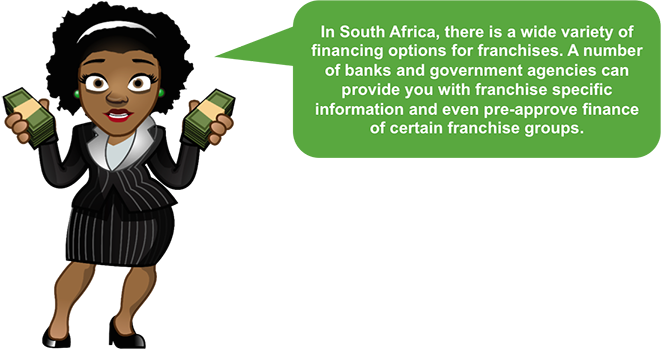
MEET THE TEAM

| Mrs Darlene Menzies |
| CEO |





